FHSA: Canada’s Tax-Free First Home Savings Account
With the government having launched the First Home Savings Account (FHSA) in 2023, more first-time home buyers should really be looking to take advantage of the tax-free benefits of the FHSA in 2024.
The idea is obviously to make it easier for Canadians to buy their first home.
In addition to the more straightforward benefits, there are a couple of unique ways that you can use your FHSA account. It’s also important to get the details right (especially when combining your FHSA with a partner’s FHSA).
Perhaps most importantly, both Qtrade and Questrade now have First Home Savings Accounts available on their platform – AND Qtrade is including them as part of their best-in-class current promotional offer where you can get up to $2,000 in cash back (details below).
What is the First Home Saver Account (FHSA)?
The First Home Savings Account is a super tax-friendly way to save a downpayment for your first house in Canada. It’s like the TFSA and RRSP got together and spawned a house-obsessed child.
And what could be more Canadian than that?
Here’s the gist of what the First Home Savings Account offers Canadians:
- Ability to shelter up to $40,000 (lifetime max) from the tax man.
- You have an annual $8,000 contribution limit.
- You can combine your limit with a partner’s limit to save up to $80,000 when buying a home in Canada for the first time.
- Best of both worlds: You get the RRSP tax refund, plus the TFSA “no taxes on the way out” combination!
- Your money can be invested within the account – earning more down payment cash for you as you add to it and progress on the house-buying journey..
- You get 15 years from when you first open your FHSA to when you have to use it – or else it gets rolled into your RRSP.
Best Investments for the FSHA
It appears that owning pretty much the full range of investments will be available to Canadians within their First Home Savers Account. Here’s the decision-making route that I would go:
1) If I need this money in the next one-to-three years – and I want to keep things super simple – I’m looking at a place like EQ Bank’s FHSA and invest in GICs or a high-interest savings account.
2) If I want to give myself more options, I would look into opening a brokerage account at Qtrade to take advantage of their current money back promo offer, and then comparing investment in Cash ETFs with other low-risk investments.
3) If you have a 5+ year timeline on buying a house, there is an argument to be made for having exposure to blue chip equities. Looking at our best dividend stocks in Canada list is a great place to start if you want relatively low volatility stocks with dependable dividend yields. That said, “safe stocks” are really only safe over the longer term, because in the short term their value can still fluctuate substantially.
Our FHSA Now – TFSA Later Top Up Plan ©
After checking with several Canadian personal finance experts, it looks like one of the best ways to quickly save your downpayment (assuming you can’t save $8,000 per year starting in 2023) is to creatively use your TFSA. Using these steps should maximize your ability to both save and get into a home as quickly as possible.
1) You get $8,000 per year in contribution room for your FHSA.
2) If you can’t save the full $8,000 per year – and you have cash/investments in your TFSA, save what you can ASAP in your FHSA from your paycheques, and then take the rest out of your TFSA to make sure you maximize the FHSA contribution room. This step will generate a tax deduction for you AND keep your money growing tax-free just as it did in your TFSA.
3) Do this in consecutive years until you are ready to purchase your first home.
4) Bank the contribution room in your TFSA to be used another day. Remember, you will only get this contribution room back at the end of the calendar year, so don’t try to put money back in before that point.
Eligibility Rules for the First Home Savers Account
To pass the eligibility rules for the FHSA, you need to be:
- A resident of Canada
- At least 18-years of age
- You cannot have owned a home in the four years preceding when you use the FHSA
- You can only use the FHSA once
- There may be more FHSA eligibility rules to come before 2023
How Much Can I Contribute to the FHSA?
The contribution rules for the First Home Savings Account are as follows:
- A total lifetime limit of $40,000.
- $8,000 maximum per year.
- You can combine contributions with a partner to purchase your first home together.
- You most use your FHSA within 15 years of opening it, or the money will be transferred to your RRSP.
- There is no limit on how much your investments can increase in value – only on how much you can contribute.
Can I Still Use the FHSA If I Never Buy a House?
One of the sneaky ways that the FHSA might really help you is if you actually never own a home. It might be that you start a FHSA and then decide not to buy a house. It might be that you never actually intended to buy a house at all!
It doesn’t really matter – the bottom line is that the FHSA is a fantastic tool for non-home buyers.
In fact, it’s such a good deal, that I wonder if the government understood the loophole they left when they created this thing.
In a perfect world, you would start an FHSA in 2023 and max out the $8,000 contribution room – then do the same thing over the next four years. At the end of year five, you’d have gotten some substantial tax refund cash (for example, if you have a 34% marginal tax rate, you’d have saved $13,600 over five years from the tax man).
Then – that money would get to grow through your investments until year 15 without taxes taking any of it. At that point you can buy a home, and that money would get treated like it was coming out of a TFSA, in that you wouldn’t pay any taxes on it.
BUT – it can also just be rolled into your RRSP.
**It’s key to note that rolling your unused FHSA into your RRSP does not take up RRSP contribution room. It’s like magical bonus contribution room that comes from the tax deities.**
Contributing to your FHSA does not impact the annual contribution room that you will be accumulating in your RRSP and TFSA. Those accounts will still be there for you.
FHSA vs RRSP vs TFSA
When looking at buying your first home, you likely want to consider how to use the three main tax-advantaged accounts: the FHSA, RRSP, and TFSA.
Each of these accounts has its own rules, but each might have a place in your plan to grow your down payment as fast and efficiently as possible.
The TFSA is comparatively simple, as money can be put in and taken out of the account without using any specific program. The RRSP on the other hand will require you to use the Home Buyer’s Plan (HBP). This plan allows you to borrow money from your RRSP in order to buy your first home – but it must be repaid back (so it’s not quite as straightforward as the TFSA or FHSA).
| FHSA | TFSA | RRSP (Using the HBP) | |
| Contributions are tax deductible (giving you a tax refund). | Yes | No | Yes |
| You won’t pay tax when you take money out for your downpayment. | Correct. | Correct. | Mostly correct. (You will not pay tax when you borrow from yourself using the HBP, but if you don’t pay yourself back at some point that money will be taxable.) |
| Investments within the account can include GICs, Bonds, ETFs, or stocks. | Yes. | Yes. | Yes. |
| Annual Contribution Limit | $8,000 | $7,000 (for 2024) | $31,560 OR 18% of your previous year’s income (whichever one is lower) |
| Lifetime Contribution Limit | $40,000 | Grows annually. If you turned 18 before 2009, you’d have $95,000-worth of contribution room in 2024. Check our TFSA contribution article for more details. | Grows annually. Each year whatever goes unused from your annual contribution limit gets “carried forward” until you decide you want to start taking money out of RRSPs (usually age 65 to 71). |
| Available at Qtrade | Yes | Yes | Yes |
| Available at EQ Bank | Yes | Yes | Yes |
Tax Free Home Savings Account FAQ
Is the FHSA the Best Way to Buy a House in Canada?
The Tax Free First Home Savings account is the best way to buy your first home in Canada.
It allows you to build a down payment nest egg as quickly as possible, as you won’t ever owe taxes on the contribution money – or the investment returns made within the account – which is pretty cool.
The downside here is that the FHSA will not make buying a house more affordable. If anything, I’d argue the creation of this account will just increase the incentives to purchase a home in Canada.
That said, perhaps the foreign buyer ban (I’m dubious as to how much this will matter) and the higher-for-longer interest rates (this one could matter a lot more) will continue to bring Canada’s housing market back to Earth. The market remained pretty resilient in 2023, but it’s looking like the stress cracks are showing and that there will be more forced selling in 2024.
The First Home Savers Account (FHSA) will also only help the people that can already afford to save $8,000 per year in Canada – and one could argue that it actually most benefits the people in a position to make use of the tax deduction (who are the highest income earners). So that’s not ideal.
All the same, you should take advantage of opening an FHSA whether you ever intend to purchase a home or not. Plus, you can get paid to start a FHSA today if you open one at Qtrade.

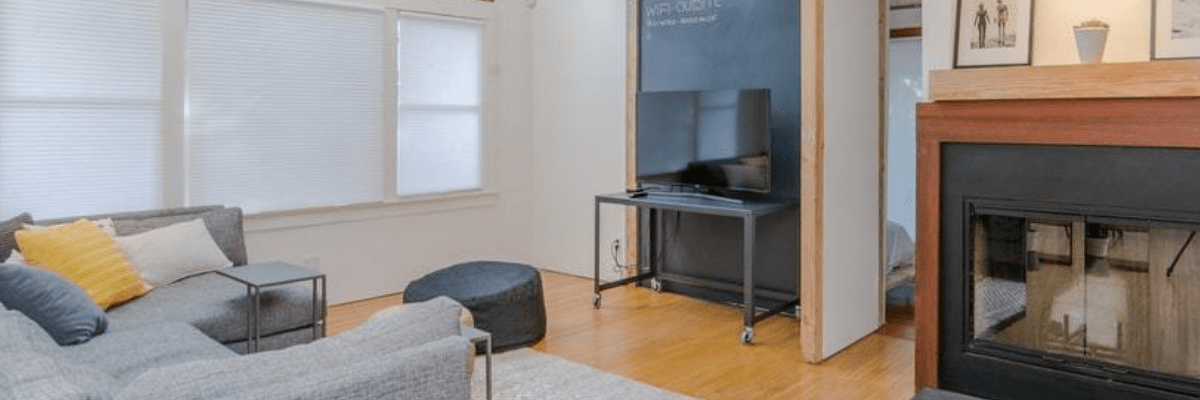
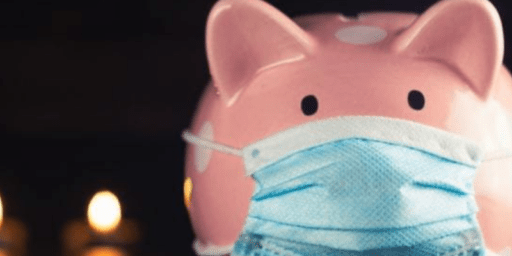
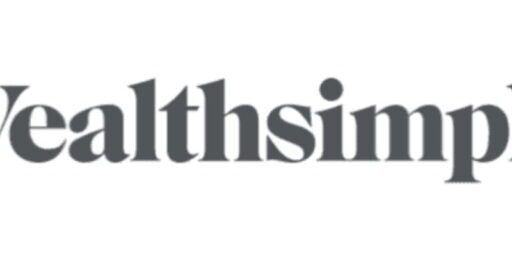
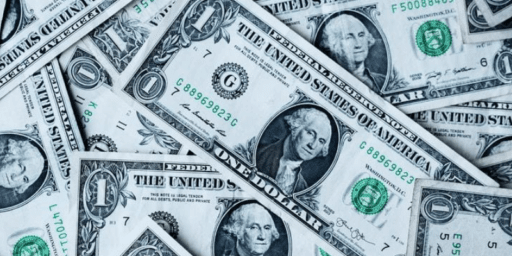

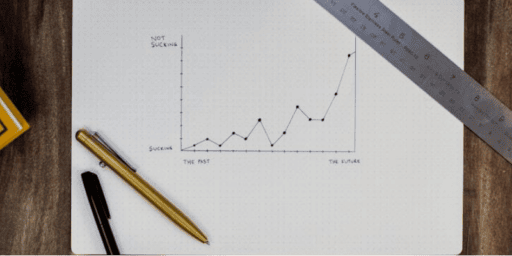

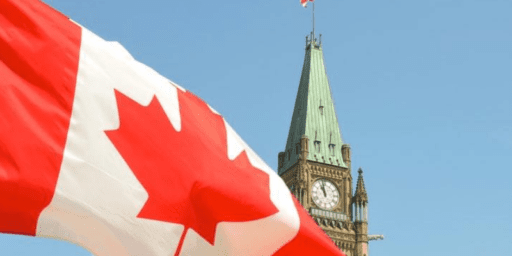


Thank you.
Do you believe that if that count is held for more than 5 years it would be better to invest in dividend equities /dividend stocks rather than ETFs?
I thought dividend stocks are better in cash accounts for tax efficiency while ETFs better for tfsa and I thought fhsa is quite similar to tfsa in terms of tax efficiency.
One question I am getting conflicting answers to is: if someone opens an account in 2023 but only contributes, say $2,000, can the $6,000 room be saved for a later contribution?
Yes – it most definitely can be saved for later contribution birdscout.
This is a much needed program for young Canadians. So many are priced out of the housing market right now. For those who can compound and be patient, maybe a correction will happen in major markets allowing for a combined increased savings for a down payment and a better overall price.
Sounds almost too good to be true…
Initial deduction + no tax at withdrawal!
Could I start investing $8k/year for five years (starting next year), perhaps in a FHSA that let me hold XEQT… let that $40k in deposits grow over the following 10 years… then when the FHSA account was 15 years old roll the entire balance into my RRSP? And by keeping those funds separate from my RRSP for those 15 years I retain the ability to buy a home (even if I don’t want one now), and the funds are easier to withdraw?
It’s effectively $40k more in RRSP room, without requiring the extra employment income to earn it?
This thought had occured to me as well Mike. I’m waiting for the final draft of the FHSA rules before I confirm this.